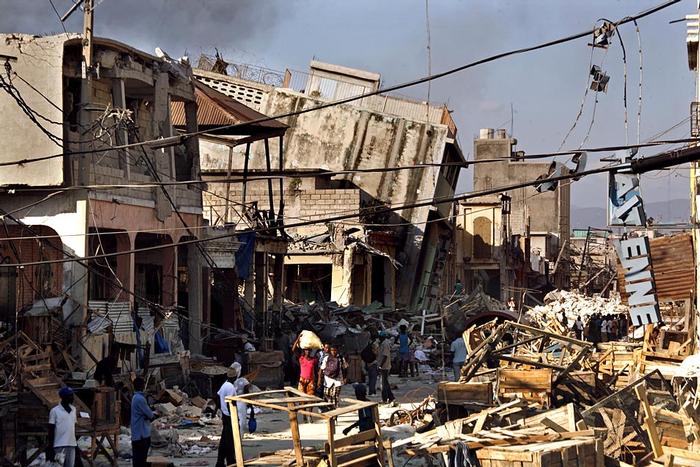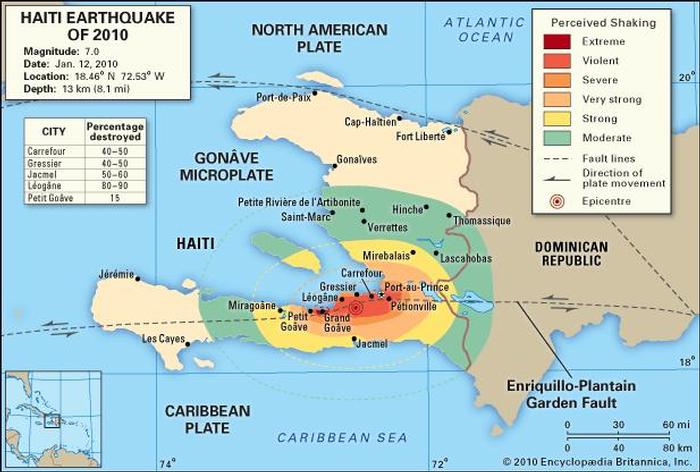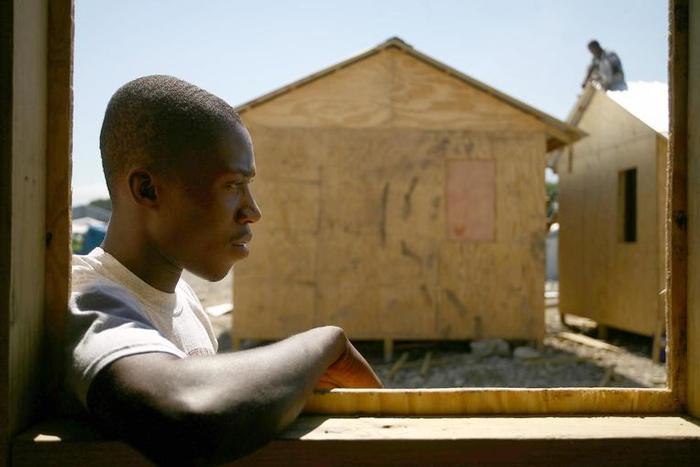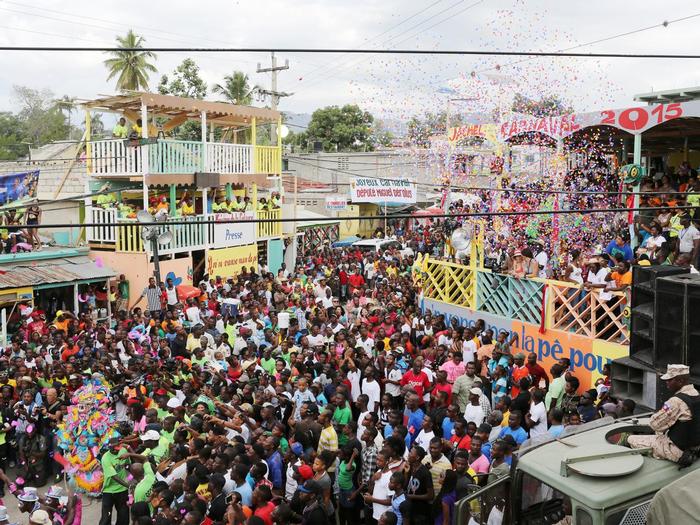Atianna Cordova ProposalHaiti: Cultural Sustainability (Ethnographic Field School and Community Engagement) ProgramIn my original essay for this year’s Berkeley Prize Essay Competition: Sheltering Those in Need: Architects Confront Homelessness, I discussed that during the aftermath of Hurricane Katrina in 2005, the entire city of New Orleans was placed in a state of homelessness. This left many residents, including myself, displaced and without permanent shelter in areas across the United States. Shelters and transitional/permanent housing programs have been the main contributors in addressing the immediate need of sheltering this population. However, providing shelter alone does not address the comprehensive set of social, cultural, economic, and psychological needs of someone who has been or is experiencing homelessness. With this premise, it was concluded that in order to fully address and understand this humanitarian crisis, a participatory design process amongst designers, community organizers, members, and homeless individuals is needed, which will develop viable solutions that not only provide shelter to those in need, but promote self-reliance and independence. Next, when asked to submit a Travel Fellowship Proposal for a study away opportunity that further supported this year’s topic, I became curious to know how countries and communities that may not have the same financial means, resources or organizational systems as the U.S. are able to recover post-disaster. With this question in mind, I began looking for international programs that focused on post-disaster recovery efforts, opportunities to participate in direct community engagement and the freedom to further explore my role as an inspiring architect assisting marginalized groups. After many explorations, I came across LSU’s Academic Study Abroad Program, Haiti: Cultural Sustainability created by Dr. Joyce Jackson (1-2). Essentially, Haitian immigrants became part of the Louisiana landscape during the colonial period. Ethnic enclaves came from various strata of Haitian society, French planters, Creoles and the enslaved. When they arrived in Louisiana, they shared many of the same languages (Creole and French) and the same mix of religions, and ultimately influenced their music, dance, carnival celebrations, arts and crafts, food ways, and architectural elements (3). In the course description, Dr. Jackson states that students have the opportunity to learn about the shared historical, social, environmental and cultural contexts of Haiti and southern Louisiana (specifically New Orleans); and engage in community dialogues pertaining to Haiti’s earthquake disaster. Additionally, this program operates as a field school, which allows students to conduct ethnographic field work relating to one’s own research interest. Similar to Hurricane Katrina, the Haitian Earthquake of 2010 left hundreds of thousands of people homeless and continues to leave members of economically vulnerable communities banished. With the nineteenth and twentieth century unique ties that bind Haiti and New Orleans, with similar and almost identical cultural elements, this program offers a viable opportunity to address these two geographical areas, which are in need of more strategies related to economic development and sustainability. And if granted funding, I would use this unique opportunity to examine, compare and contrast how culture can strengthen and help sustain a community post-disaster. In order to understand the social art of architecture, it is important to understand the cultural influences and its impact in vulnerable communities, which then begins to inform my role as a designer for humanitarian crises. As outlined in the course breakdown, my proposed research would be addressed through four main interactions:1) preparing for field work 2) conducting field wok 3) organizing/analyzing data, editing visual essay and writing about field work and 4) community engagement and reflection activities. In addition, through recorded interviews and assistance/advisement from Dr. Jackson, I will seek to examine the sheltering strategies/resources that have been employed to assist those affected by the 2010 earthquake and interview community members/personnel from non-profits in the area to understand their effectiveness/impact. Ultimately, visiting Haiti would allow me to actively engage with the community and students from different fields to bring awareness to the social responsibility of architects to improve the well-being of all people by eradicating the idea that only the economically privileged are deemed worthy of quality design or research. Also, I will gain insight into the historical context leading to the challenges faced by Haitian residents; value their personal stories and the importance of them in design work; develop intercultural communication; share knowledge gained from the visit through a presentation forum open to LSU and its surrounding communities; and document photos and outcomes of the travel to the Berkeley Travel Fellowship Committee. Jury Members, thank you for the opportunity to further the conversation of the social art of architecture and to apply for this Travel Fellowship. PROGRAM ITINERARY: Sunday, May 15: Depart from New Orleans to Port-au-Prince, Haiti Travel to Jacmel, Haiti (approx. 2 ½ hour ride) Monday, May 16: Jacmel Field Site 9:00-12:00 p.m. Orientation to Jacmel and the University of the South East Lecture on the History of Jacmel, Haiti Lecture on the Haitian Influences in Louisiana Post Revolution Readings: Hunt, Alfred. 1988. Slumbering Volcano: Haiti Influence on Antebellum America. Baton Rouge: LSU Press. Chapters 3&4. 1:00-4:00 p.m. Meet Research Population and Community Engagement Partner *Fieldtrip: Walking Tour of Jacmel’s Historical District and Colonial Town* Tuesday, May 17: Collaborative Ethnography 9:00-12:00 p.m. Critical Ethnography Theory and Method Preparing for the Field: Research Design Formulating Questions, Field Techniques, Interviewing Skills and Writing Ethnography Readings: Lassiter, Luke Eric. 2005. “Collaborative Ethnography and Public Anthropology,” Current Anthropology. 46 (1): 83-103; Madison, D. Soyini Critical Ethnography. London: Sage Publications, 2005. Chapters 1&2; Emerson, Fretz and Shaw, Writing Ethnographic Fieldnotes. Chicago: University of Chicago Press, 1995. Chapters 2,3 and 4. 1:00-4:00 p.m. Work at the field site with community engagement partner Wednesday, May 18: Doing Field Research 9:00-12:00 p.m. Work at field site interviewing, observing and filming 1:00-4:00 p.m. Work with community engagement partner Thursday, May 19: Doing Field Research 9:00-12:00 p.m. Work at field site interviewing, observing and filming 1:00-4:00 p.m. Work with community engagement partner Discussion on research data: organizing, analyzing and writing ethnography and designing video essay Friday, May 20: Field Excursion/Service- Makandal Organix, Cayes Jacmel 9:00-5:00 p.m. Full day in the mountains with an agribusiness project Saturday, May 21: After Breakfast Reflection 9:00-1:00 p.m. Review field notes and journals Reflect on experiences and continue designing video Start editing film ** Afternoon: Free Time- Field Trip to Le Bassin Bleu (Blue Falls)** Sunday, May 22: Developing Visual Essay 9:00-12:00 p.m. Editing visual essay 1:00-4:00 p.m. Editing visual essay Monday, May 23: Presenting Visual Essays and Community Projects 9:00-2:00 p.m. Final editing 3:00-4:00 p.m. Present final projects Tuesday, May 24: Depart Jacmel for Port-au-Prince Airport 7:00- Morning departure to Port-au-Prince Depart Port-au-Prince to New Orleans Airport BUDGET: 1) Estimated roundtrip airfare from New Orleans, Louisiana to Port-au-Prince, Haiti (jetBlue Airways)- $1,259.66 2) Program Fee (including housing in double rooms at the Hotel Cyvadier, 2 meals per day, ground transportation in Haiti, fieldtrips and cultural events and health insurance)- $1,150 3) LSU Tuition and Fee (in-state student): $1,229 4) Additional one meal cost at $15 per day- $150 ESTIMATED GRAND TOTAL: USD $3,788.66 REFERENCES: 1) LSU Academic Programs Abroad Program Info Page and contact: http://www.lsu.edu/intlpro/apa/search.php 2) Dr. Joyce Jackson (professor and advisor for the program): jjackso@lsu.edu 3) Dr. Joyce Jackson’s Course Concept as explained in syllabus Additional Help and InformationAre you in need of assistance? Please email info@berkeleyprize.org. |




